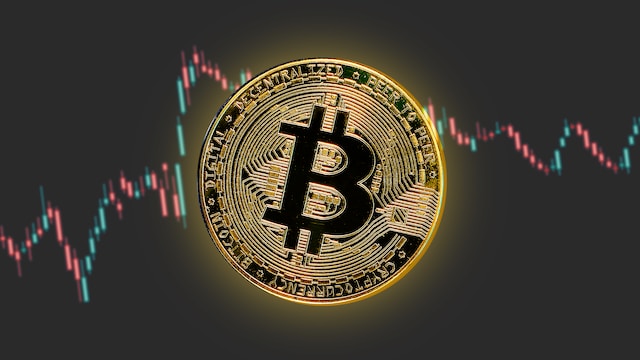[Reuters Breakingviews] Inflation defences are no match for debt burden

By Edward Chancellor
LONDON, Sept 11 (Reuters Breakingviews) - Countries across the Western world are over-indebted. In theory, they could grow their way out of the debt or rein in their fiscal deficits. But the richer countries have a miserable recent growth record. And as the fall of French Prime Minister François Bayrou this week shows, there’s no public appetite for austerity. The siren of inflation calls. Whether countries succumb depends on how tightly they have lashed themselves to the mast.
Anti-inflation commitments vary in strength, from weak to strong. The weakest is central bank independence. Central bankers do not usually face the sack for missing their inflation target. Keeping monetary policy tight presents a bigger career risk, as Federal Reserve Chair Jay Powell has learned. Although the U.S. central bank is notionally independent of the executive, President Donald Trump wants easy money and has taken to publicly berating Powell’s decisions.
Trump is following a well-trodden path. Presidents Lyndon Johnson and Richard Nixon both pressured their top central bankers to ease policy. At one fractious meeting, LBJ is said to have pushed Fed Chair William McChesney Martin against a wall. Martin’s successor, Arthur Burns, failed to stand up to Nixon and unwittingly unleashed the Great Inflation of the 1970s.
Governments that issue inflation-linked bonds are making a much stronger commitment to price stability. When the United Kingdom issued its first government bonds whose principal and interest was tied to the price level in 1981 a Treasury paper opined: “Indexed borrowing imposes discipline in that it becomes less easy for a government to inflate as a way of resolving immediate difficulties ... only a government committed to a sustained reduction in inflation would wish to issue them.”
Today, nearly a third of Britain’s outstanding gilts are so-called “linkers”. The Spectator magazine frets that this mountain of indexed borrowing will cause the public finances to crash. In June, the government paid just short of 11 billion pounds in interest on index-linked bonds, equivalent to 63% of its debt-servicing costs. The inflation “uplift” on the nominal 423 billion pounds of outstanding linkers has added 254 billion pounds to the national debt.
Still, such fears are probably overdone. The June spike in interest costs was anomalous. Over the past couple of years, inflation-linked gilts have accounted for 30% of total debt-servicing costs, in line with their share of the public debt. Furthermore, most outstanding inflation-linked debt carries very low coupons. For instance, the 2073 index-linked bond was issued with a coupon of just 0.125%.
If inflation picks up again, the British government has several options to limit the costs. For instance, it might tweak the inflation numbers used to calculate payments. It has already taken a step in that direction. Since 1981, UK inflation-linked gilts have referenced changes in the Retail Prices Index. From 2030, however, payments will be tied to a different price benchmark known as CPIH. This index has historically produced a lower inflation print. The Office for Budget Responsibility reckons the change will save the government around 4 billion pounds in 2030.
Capital gains and inflation-related payments on linkers are currently exempt from capital gains tax. This tax loophole could go. The policy of keeping interest rates below inflation, known as financial repression, often involves the state taking control of private savings, according to investment strategist Russell Napier. The 2025 Pension Schemes Bill, currently going through Parliament, contains a so-called “mandation” clause that potentially allows the government to direct private pension investments. Napier suggests that if UK bond purchases were made compulsory for pension schemes, yields on nominal bonds and linkers could be pushed down.
The hardest commitment against inflation comes when the government surrenders control of the money-printing press. In the past countries achieved this by joining the gold standard. Pegging the domestic currency to a foreign one (usually the U.S. dollar) has a similar effect. The trouble is that overly strong anti-inflation commitments can result in national bankruptcy.
Following the German hyperinflation of the early 1920s the country issued a new gold-based currency, the Rentenmark. The economy picked up for a few years. But after foreign capital flows halted towards the end of the decade, Germany experienced a severe deflation, followed by a banking crisis. It jettisoned the gold standard in 1931. Two years later the Nazi government defaulted on Germany’s foreign debts.
Currency pegs can also turn nasty. Mexico’s “Tequila Crisis” started in December 1994 after a sharp devaluation of the peso, which had been previously fixed to the dollar. Large dollar-denominated liabilities owed by both the public and private sector became untenable and the Mexican economy went into a tailspin. A bailout arranged by the United States and International Monetary Fund staved off a sovereign default. Argentina was not so fortunate when its currency peg broke in late 2001. Deserted by the IMF, Buenos Aires immediately defaulted.
When the euro was created in 1999, some economists saw the single currency as a proxy for the gold standard. No longer would European governments be able to prime inflation to reduce their debt burdens. Greece discovered this harsh new reality in the early 2010s and defaulted a few years later. France is the euro zone’s second largest economy. Its current predicament has similarities to Argentina’s a quarter of a century ago: a lack of political consensus to restore fiscal order, public unrest, large foreign debts and a weak economy.
Could another European sovereign debt crisis beckon? German economist Thomas Mayer of the Flossbach von Storch Research Institute believes not. When the Greek debt problem first appeared, the European Central Bank was a largely passive bystander. That changed in July 2012, when ECB President Mario Draghi promised to “do whatever it takes” to keep the euro zone together. The central bank then became an active buyer of government bonds, keeping debt spreads of member countries from rising out of line.
Mayer believes that the European Union will come to France’s aid. Germany needs French military support against the Russian threat more than it fears any loss of price stability. Under Chancellor Friedrich Merz, the country’s debt brake is off. Eurobonds beckon, says Mayer. In summary, nowhere in the Western world are there insuperable impediments that prevent governments from inflating away their debts.
Follow @Breakingviews on X
The interest bill on UK inflation-linked bonds spiked in June

The spread between French and Italian bonds evaporated under Macron









